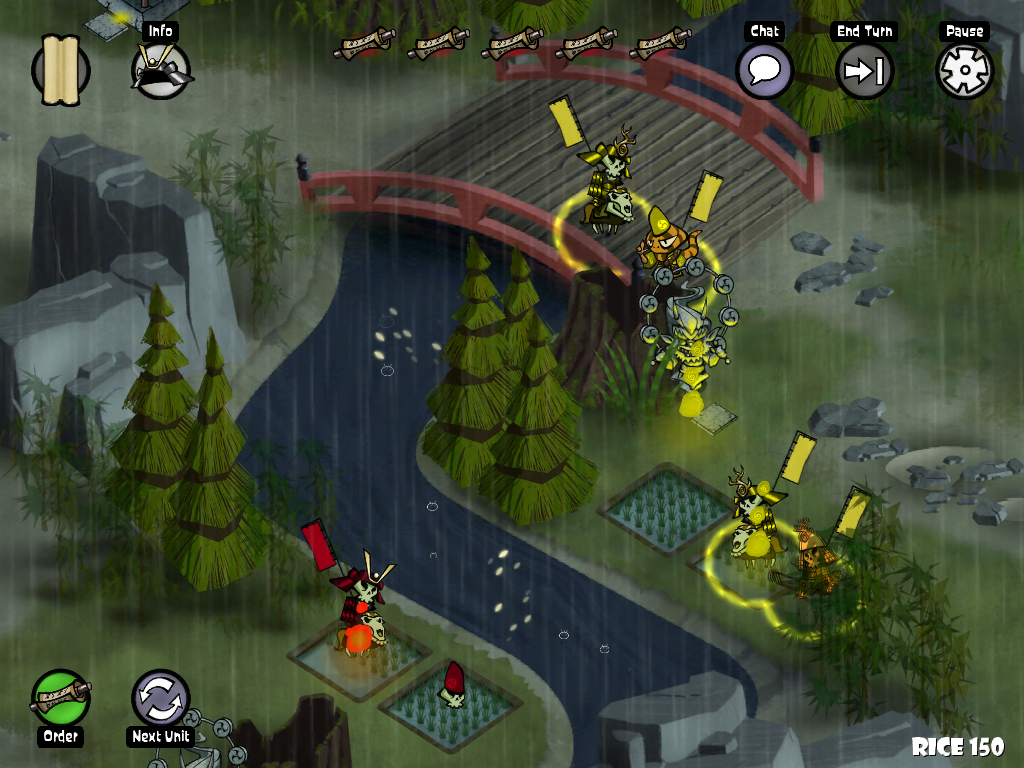Skulls of the Shogun, a game about a recently slain samurai fighting his way though the afterlife, is nothing if not slow. Its bright palette, bawdy humor, and straightforward concepts suggest an easy, breezy turn-based strategy game, but large maps, limited moves per turn, and cutthroat enemy armies combine to make skirmishes feel long and drawn-out. Don’t mistake “slow” for “meticulous” or “tedious,” though, as Skulls of the Shogun is neither, opting instead for a series of tense, chaotic, down-to-the-last-man tête-à-têtes.

Developer 17-BIT’s iOS debut works within a well-established framework. In Skulls of the Shogun, enemy generals take turns positioning soldiers, mounted cavalry, and archers, all the while gathering resources and trading blows. Here’s the catch: you only get five actions per turn, which drastically limits how quickly you can, say, set up a defensive position or flank an unsuspecting shogun. As a result, would-be warlords never have the luxury of perfect timing or formations, and one bad move can change the course of a battle, dooming your soldiers to slow attrition.
Skull of the Shogun’s migration from controllers and keyboards to touch screens only amplifies the game’s sense of piecemeal action: troops work best in tight clusters, so selecting and moving an individual unit can be a chore until you get the hang of it. The game’s online multiplayer is asynchronous as well, which means battles can take days. The half-hour it takes to complete most single-player missions seems dainty in comparison.
Once settled into Skulls of the Shogun’s deliberate pacing, you’ll find an elegant and flexible system that gracefully absorbs new soldier types and ideas. In addition to basic attacking and defending, Skulls of the Shogun has an eye for topography — soldiers can hide in bamboo groves, or be driven into raging rivers if they stand too close — and magic, with fireballs and healing potions abound. These are basic concepts to be sure, but they’re malleable enough that every mission has a unique tone and texture, plus its own tactical approach. While your own strategies may flounder and break against Skulls of the Shogun’s armies, 17-BIT has executed its own admirably.
The bottom line. Players looking for the chance to devise a plan and execute it perfectly may bristle at Skulls of the Shogun’s reliance on slow-moving chaos, but open-minded tacticians will find a sense of levity, flexibility, and improvisation not found in most turn-based strategy games.
Review Synopsis
Product: